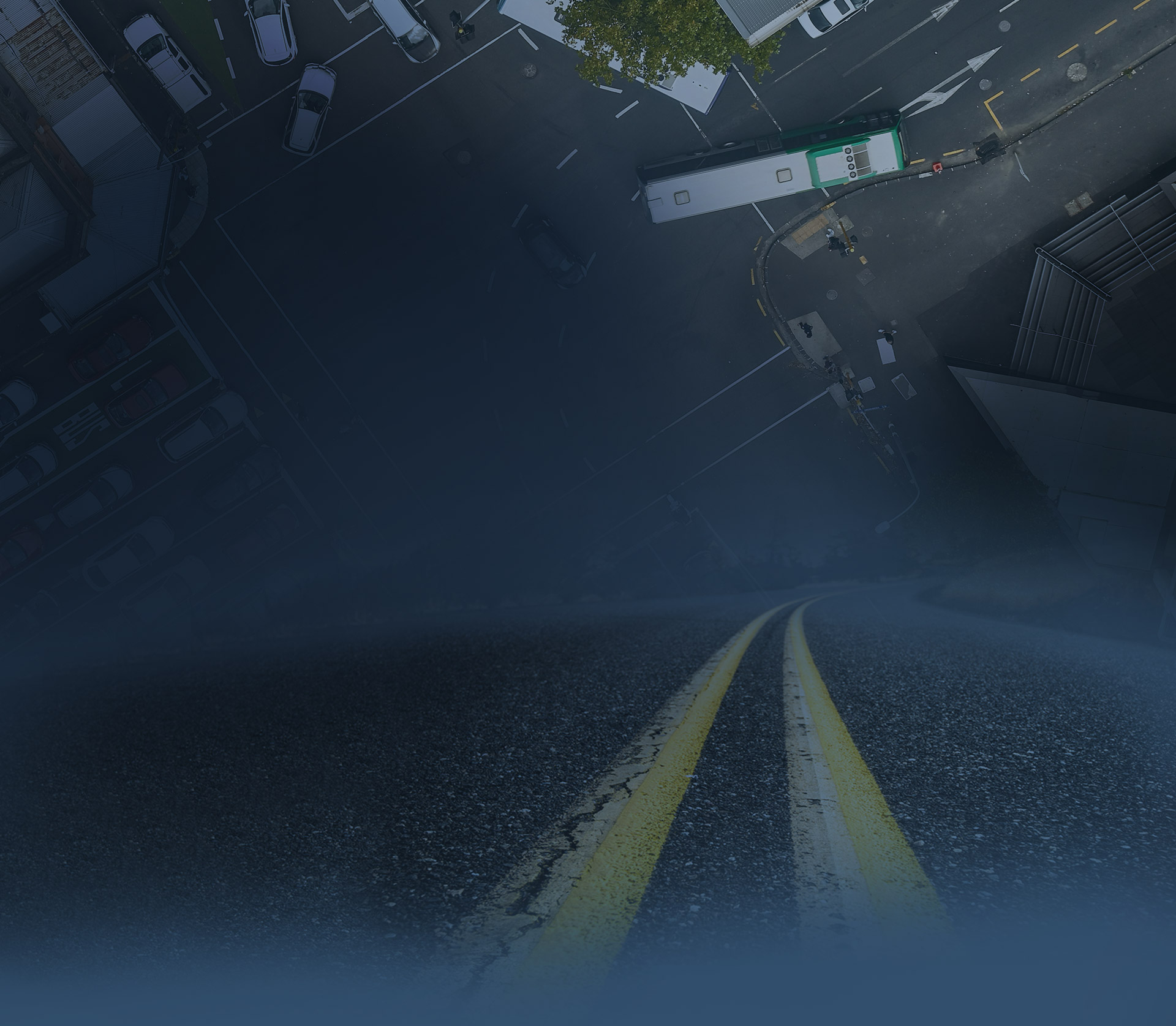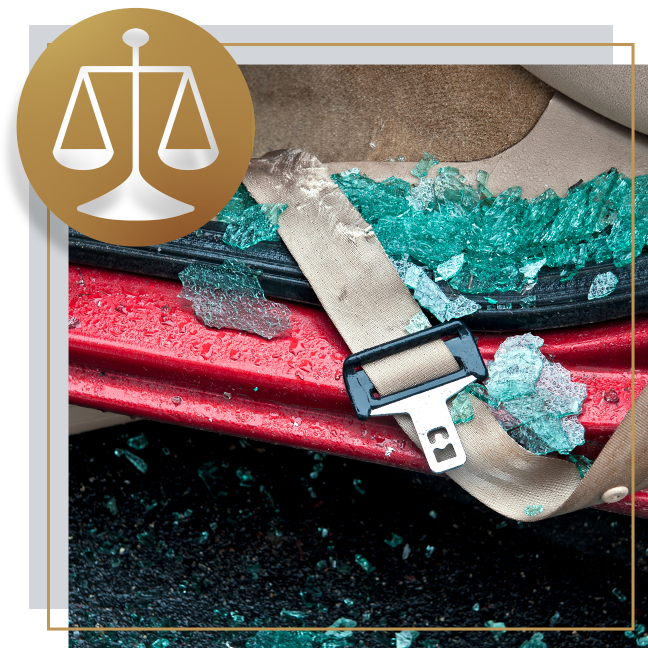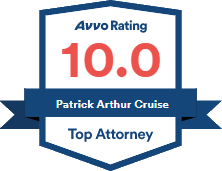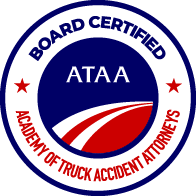
Chattanooga Rideshare Accident Attorneys
Fighting For Those Who Have Been Injured in an Uber or Lyft Accident in Tennessee, Georgia, or Alabama
The ridesharing industry is growing rapidly and changing the way people get around the Chattanooga area and throughout Tennessee. Companies like Uber, Lyft, and others are revolutionizing the way that people get rides, and they are doing it with a business model that is built around part-time drivers who use their personal vehicles to give rides to other people.
These rideshare drivers are not professional drivers, and they are not given the same kind of training that a professional driver would be given. As a result, we have seen numerous rideshare accident legal claims, and we expect to see many more in the future.
The Hamilton Firm LLC is here to help you if you have been injured in a rideshare accident. We know that rideshare drivers are not given the same training as professional drivers, and that is why we are committed to holding ridesharing companies accountable for the injuries and damages that result from rideshare accidents.
If you have been injured in a rideshare accident, we can help you understand your legal options and help you recover the compensation you deserve. Call (423) 454-3288 today to speak with our Chattanooga Uber and Lyft accident attorney.

Trucking and car accidents can take a toll on your life. Our attorneys are here to help you get the compensation you deserve.

Tennessee Rideshare Laws
Tennessee law defines ridesharing services as Transportation Network Companies (TNCs). TNCs are businesses that connect passengers with drivers through a digital platform or application.
To become a rideshare driver in Tennessee, individuals must meet certain requirements, including:
- Age: Drivers must be at least 18 years old.
- Driver's License: Drivers must have a valid driver's license.
- Vehicle Registration: The vehicle used for ridesharing must be properly registered.
- Background Checks: TNCs are required to conduct background checks on their drivers, which may include criminal history and driving record checks.
TNCs in Tennessee are required to maintain insurance coverage that meets specific standards. The coverage must apply from the moment the driver accepts a ride request until the completion of the ride. The insurance coverage must include liability insurance, uninsured/underinsured motorist coverage, as well as contingent collision and comprehensive coverage.
Understanding Insurance Coverage While Riding with Uber or Lyft in Tennessee
Uber and Lyft provide different levels of accident coverage depending on the driver's app status. Here's an overview of their coverage policies:
- App is off: When the driver's app is off and they are not actively available to accept ride requests, Uber and Lyft do not provide any coverage for accidents that occur during this time. The driver's personal auto insurance would typically apply in such situations.
- App is on and waiting for a ride request: When the driver's app is on and they are waiting for a ride request, both Uber and Lyft provide contingent liability coverage. This coverage comes into effect if the driver's personal auto insurance doesn't apply or is insufficient. Uber and Lyft's contingent liability coverage includes third-party liability coverage for bodily injury (up to $50,000 per injury and $100,000 per accident) and property damage (up to $25,000) caused by the driver while they are waiting for a ride request. The coverage limits vary depending on the specific circumstances and local regulations.
- App is on and the driver is en route to pick up passengers or during rides: When the driver's app is on, and they are en route to pick up passengers or during an active ride, Uber and Lyft provide primary liability coverage. This coverage includes third-party liability for bodily injury and property damage caused by the driver. It also includes coverage for the driver's own injuries, subject to certain conditions and limits. The coverage is up to $1 million for third-party auto liability.
What are the Liability Issues Involved in Rideshare Accident Lawsuits?
Because rideshare drivers are not professional drivers, the ridesharing companies that employ them are not liable for the injuries and damages that result from an accident. Instead, the liability for these accidents falls on the driver who was using their personal vehicle to give rides to others.
In many cases, the driver's personal insurance will cover the accident because they were not acting as a rideshare driver at the time of the accident. However, if the driver's personal insurance company denies coverage, the ridesharing company may be liable for the accident. If the ridesharing company is found to be liable, the victim may be able to recover compensation for their injuries and damages from the ridesharing company's insurance policy.
It is important to note that ridesharing companies will often try to avoid liability by claiming that the driver was not "acting as a rideshare driver" at the time of the accident. They will argue that the driver was not on the clock and was simply using their personal vehicle to give rides to others. If the ridesharing company is found to be liable for the accident, the victim will likely only be able to recover compensation for their injuries and damages from the driver's personal insurance.
In these cases, the victim will have to prove that the driver was acting as a rideshare driver at the time of the accident. This may be difficult to do, but we know how to gather the evidence we need to prove our client's case. Our team of Lyft accident attorneys in Chattanooga is well-versed in handling such scenarios.
Common Causes of Rideshare Accidents
Chattanooga, known for its vibrant culture and bustling streets, has seen an increase in rideshare usage. With this increase comes specific challenges that often lead to accidents. Some common causes of rideshare accidents in the Chattanooga area include distractions faced by drivers. Unlike professional drivers trained to minimize distractions, rideshare drivers may frequently interact with their phones for navigation and ride management. This dependence on technology can lead to momentary lapses in attention, increasing the risk of accidents.
Another significant factor is the pressure on rideshare drivers to complete rides quickly to maximize their earnings. This urgency can lead to speeding, abrupt lane changes, or risky driving behaviors, especially during peak traffic or busy downtown areas like Market Street or Broad Street. Additionally, the mixed traffic of vehicles, cyclists, and pedestrians in urban settings adds to the complexity, making it crucial for drivers to remain vigilant. By understanding these challenges, rideshare companies and local authorities can work together to implement solutions that enhance safety for all road users.
What Impact Do Rideshares Have on Chattanooga Traffic?
Rideshare services like Uber and Lyft have significantly impacted Chattanooga's traffic dynamics. While offering convenience, they have introduced new patterns in traffic flow across the city. The constant movement of rideshare vehicles, particularly in popular areas such as the Walnut Street Bridge and Coolidge Park, can contribute to peak-hour congestion. This increase in vehicles on the road can cause delays, affecting not only rideshare users but also local commuters and public transport.
On the positive side, rideshare services have also provided an alternative to personal vehicle use, potentially reducing the number of cars on the road and promoting a more sustainable urban environment. Additionally, they offer a reliable transportation option for those without access to personal vehicles or those preferring not to drive in heavy traffic or under inclement weather conditions, which is common during Chattanooga's rainy months. By providing these alternatives, rideshare services help mitigate the environmental impact of car emissions and support the city’s initiatives towards greener transportation solutions.
Contact Our Rideshare Accident Attorney in Chattanooga Today
After a rideshare accident, you may be confused about what to do next. You may not know if the rideshare company is liable for the accident or if you should file a claim against the driver's personal insurance. We can help you understand your options after a rideshare accident and help you move forward with your case.
Our team can help you if you have been involved in an accident with a rideshare driver. We have helped numerous people who have been injured in rideshare accidents. We know that rideshare drivers are not given the same amount of training as professional drivers, and that is why we are committed to getting victims of rideshare accidents the compensation they deserve.
If you have been injured in an accident, contact our firm today. Call us at (423) 454-3288 to speak with our Chattanooga rideshare accident lawyer.
Still Have Questions? Get the Facts
What should I do after a rideshare accident in Tennessee?
Ensure everyone's safety, call 911, document the scene with photos, exchange information with all parties involved, and report the accident to the rideshare company.
Who will pay my medical bills after a rideshare accident?
Liability depends on who was at fault. Claims may be made against the rideshare driver's insurance, the rideshare company’s insurance, or other drivers involved, depending on the situation.
What happens if the rideshare driver was not at fault?
If another driver was at fault, you may file a claim against that driver’s insurance, and possibly rely on the rideshare company’s uninsured/underinsured motorist coverage if the at-fault driver lacks sufficient insurance.
What compensation can I seek after an Uber or Lyft accident?
You may seek compensation for medical bills, lost wages, pain and suffering, property damage, and other losses. If you suffered severe injuries, you could also pursue compensation for long-term care or rehabilitation costs.
How long do I have to file a rideshare accident claim in Tennessee?
You have one year from the date of the accident to file a personal injury claim in Tennessee, according to the state's statute of limitations.
What if I was a passenger in an Uber or Lyft and got injured?
As a passenger, you are likely covered by the rideshare company’s liability insurance, which is up to $1 million in coverage. You can file a claim with the rideshare company’s insurance or the at-fault driver's insurance.
What if I was hit by a rideshare vehicle while walking or biking?
If you were injured as a pedestrian or bicyclist by a rideshare vehicle, you can file a claim against the driver’s insurance or the rideshare company’s insurance, depending on whether the driver was on duty.
Do I need a lawyer for an Uber or Lyft accident claim?
It’s advisable to have an Uber and Lyft accident lawyer in Tennessee to navigate the complexities of rideshare accident claims, including dealing with multiple insurance companies, liability issues, and maximizing your compensation.
How do I prove that the rideshare driver was at fault?
You’ll need to provide evidence such as police reports, witness statements, traffic camera footage, and accident scene photos to show that the rideshare driver was negligent or violated traffic laws.
What if my injuries worsen after I’ve already accepted a settlement?
Once you accept a settlement, you generally cannot reopen the case. That’s why it’s important to ensure you understand the full scope of your injuries before agreeing to any settlement.
Can I recover damages for emotional distress?
Yes, if you experienced emotional or psychological trauma, you can pursue compensation for pain and suffering, including emotional distress, anxiety, and PTSD.
Does uninsured motorist coverage apply to rideshare accidents?
Uninsured/underinsured motorist coverage applies when the at-fault driver lacks sufficient insurance. The rideshare company typically provides $1 million in UM/UIM coverage to protect passengers and other victims.
What if I wasn’t wearing a seatbelt? Can I still file a claim?
Not wearing a seatbelt may reduce your compensation due to comparative negligence, but it does not prevent you from filing a claim if the rideshare driver or another party was at fault for the accident.


.2411141259535.png)




